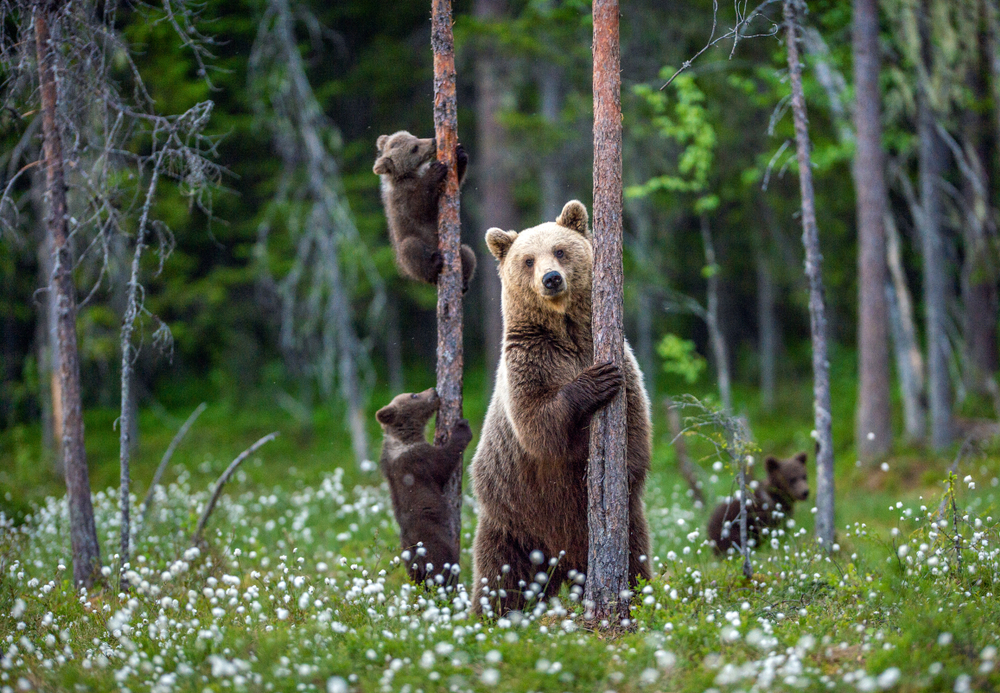Cute Kittens: A Fascinating World
Kittens, particularly those vulnerable and small, have an enduring appeal. Their charm lies not only in their looks but also in their behaviors. These young felines come with unique traits that captivate anyone who encounters them.

Early Development
The life of a kitten begins in its mother’s care, usually within a litter of about four to six siblings. Initially, they rely entirely on their mother. Their eyes and ears remain closed for the first week, making them highly dependent. It’s not until the second week that their eyes start to open. Blue is the color most will see in kitten eyes during this stage. Hearing intensifies during the third week. This is when they begin exploring using all their senses for the first time.
The weaning process starts around four weeks. Kittens slowly transition from relying solely on their mother’s milk to exploring solid food. It’s a critical time for socialization and development of motor skills. Careful observation reveals their playful spirit even at this age, with tumbling and pouncing becoming everyday amusements.
Socialization and Behavior
Play is more than fun. It’s crucial for developing hunting skills. Cats are natural predators, and kittens practice by mock hunting. They crouch, pounce, and swat at moving objects. It’s no coincidence that many toys mimic mice or birds.
During these first few months, socialization is paramount. Exposure to different people, sounds, and experiences reduces fears later in life. A well-socialized kitten tends to adapt better to new environments and situations. Aggressive play should be gently discouraged. Redirecting a kitten’s energy to appropriate toys prevents bad habits.
Breeds: Variations in Cuteness
Selective breeding has resulted in numerous distinctive breeds, each with its own style of cuteness. The Persian is known for its round face and long fur. In contrast, the Siamese stands out with its sleek physique and distinctive color points. Maine Coons grow into large cats with tufted ears, while the Sphynx is noteworthy for its lack of fur.
Each breed has its unique personality. For instance, the Ragdoll’s pliant nature contrasts the high-energy Bengal. Understanding these traits can help potential owners choose the right kitten to fit their lifestyle.
Health and Nutrition
From the start, proper nutrition is vital. Kittens need a diet high in protein and fat to support their rapid growth. Age-appropriate food is essential, as feeding adult cat food prematurely can lead to nutritional deficiencies.
Vaccinations play a crucial role in maintaining health. They protect against serious illnesses like feline distemper and upper respiratory infections. Regular vet check-ups, starting from the time they turn six to eight weeks, ensure these young felines receive needed care.
Spaying or neutering is often recommended at an early age. Not only does it prevent unwanted litters, but it also reduces certain health risks and problematic behaviors. Discussions with a veterinarian will guide pet owners to the right timing and procedure.
Caring for your Kitten
When bringing a kitten home, preparation is key. Create a safe and comfortable environment. This includes a warm bed, clean litter box, and a few toys. Gradual introduction to the household should minimize stress. Gently transitioning them to their new setting helps foster trust.
Handling is part of the bonding process. Spend time daily with your kitten to build a strong connection. Gentle petting and holding can reassuringly communicate affection. This bonding period shapes their behavior toward humans for the rest of their lives.
Playing and Learning
Kittens are learning constantly. Initiate play with toys that engage their instinctual behaviors. Feather wands, balls, and laser pointers often captivate them. These sessions also provide exercise, essential for healthy physical development.
Introducing training early can be beneficial. While they may never come when called, kittens are capable of learning some commands. Use positive reinforcement, rewarding with treats or praise for desired actions. Patience and consistency are key to successful training.
Friend for Life
Kittens quickly grow into adult cats, often within a year’s time. The bond formed during their early development lays the foundation for a lifelong companionship. A well-nurtured kitten tends to be a loyal, affectionate pet. The dedication put into their early days usually translates to an enduring, rewarding relationship.




Subscribe for Updates
Get the latest articles delivered to your inbox.
We respect your privacy. Unsubscribe anytime.